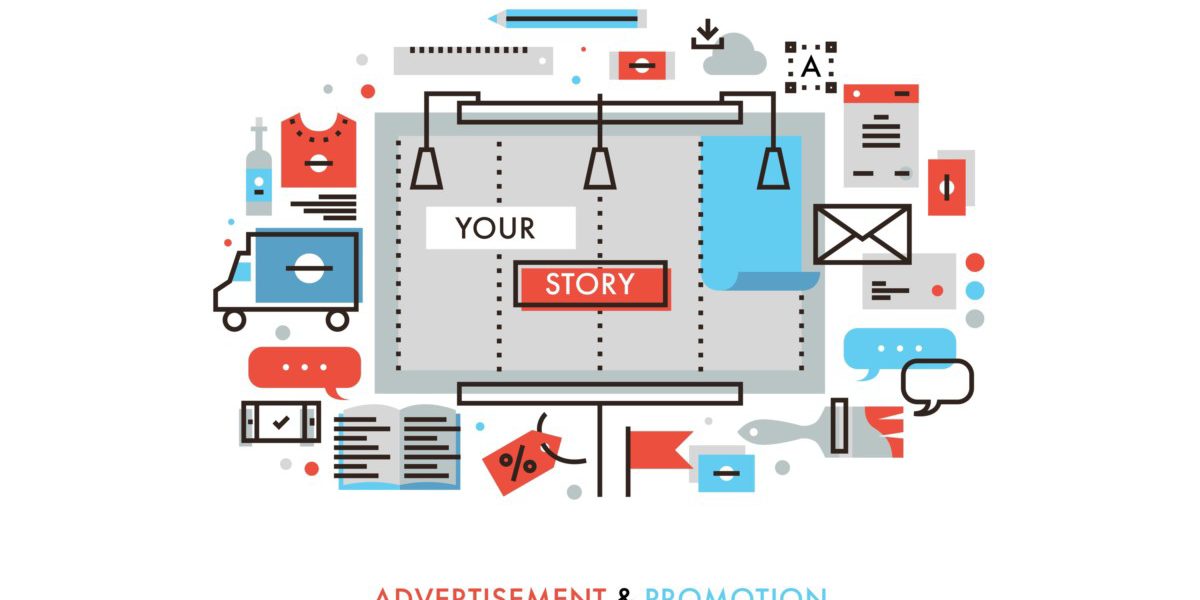This is the third and final blog post in our series, Marketing is Storytelling.
In this post, we will discuss why small businesses shy away from marketing.
Many small businesses spend very little time and resources in creating a marketing plan. This is definitely not good for growth, and it’s worth spending some time to discuss this here.
So why does this happen?
The most common reason for this is that many simply don’t believe that marketing works.
The thing is, there is this perception of marketing as a vague, out-there concept, with no tangible link between the activity itself and any income rolling in. Thus someone might ask: ‘how do I know that this particular marketing campaign brought in those particular customers?’ If there is no clear answer to this question, it will be hard to convince the business owner to invest more in marketing.
Quite reasonably, people wish to be sure that there will be a return on investment (ROI) before they lay out money for a particular activity. So if someone is not convinced of the benefits of marketing, he is not going to pay for it.
I’ve also seen businesses waste good money on marketing campaigns that were not right for them.
For your business to succeed, you absolutely must invest in marketing. But what you invest in must be the right marketing strategy for your business.
Many small business owners get overwhelmed by all this, and just opt out of marketing altogether. Although I do not advise this, I do understand the concerns they have.
The one way to address this is to set out clearly the benefits of marketing – what it actually does for your business, and how you can measure whether it’s working or not. I shall do so in this blog post.
1. What can marketing do for me?
First, a look at the scope of marketing.
Marketing covers everything that creates and maintains an authentic connection between you and your prospects and customers. Folded into this are advertising, sales, and public relations.
There are three important things that marketing does for you:
(a) Marketing lets people know about you and your business.

A great product or service will not, on its own, lead to sales. People have to know that you exist, and also that you are offering this amazing product or service. Through marketing and advertising campaigns, they will get to know about you and your business.
In the world of online marketing, there are many effective strategies to build up your online presence, and to get people to know about you. We will discuss these in a future blog post.
(b) Marketing persuades people to buy your product or service.
Creating awareness of your product or service is not enough. People have to be persuaded that what you are offering is precisely what they need. A great product with lousy marketing will not sell. On the other hand, I have seen lousy products succeed through great marketing. (Which is a pity, but that’s how it goes.)
As mentioned in (a) above, there are many effective strategies to help you build up your online presence. These could help to build up traffic to your website. However, having a lot of visitors to your website is not enough. First, they must be the ‘right’ visitors. Second, if your visitors find that the content is poorly laid out, and does not present an attractive offer, they will not buy. Your content must be persuasive, and must create a connection between you and your visitors.
This is why it is vital to have a solid content strategy, covering both online and offline content.
A solid content strategy is a powerful marketing weapon. It addresses matters such as:
- what goes into your website (home page and landing pages, product and services descriptions, blog, contact page);
- your social media strategy (eg Twitter, Facebook, Pinterest, LinkedIn, etc. Which are you using, and why? What do you plan to get out of this strategy, and how do you measure your progress);
- your marketing material (eg brochures, flyers, emails; even invoices and email signatures)
- the writing and editorial workflow for executing the content strategy;
- the style guidelines, including rules on tone of voice.
A solid content strategy is a powerful marketing weapon.
If you would like a review of your content strategy, you can contact me here.
(c) Marketing builds your brand.

Marketing creates familiarity for your business and its products and services (so-called product recognition). This enhances trust.
It’s also worth noting that people often don’t buy the first time they come across a particular marketing campaign. However, repeated contact with your marketing message will build a connection.
If you would like help with building your brand, you can contact me here.
2. How can I measure the results of my marketing? (Or, how can I measure my return on investment?)

This is a very common question.
Actually, it is standard practice to measure return on investment (ROI) in marketing. It can be challenging at times, but it is possible. We won’t go into too much detail here, but I’ll give you one pertinent example.
As a small business with an online presence, you will most likely want to increase the number of relevant visitors to your website. You will want these people to know that you exist, and then you will want them to come on over to your website to check out your products or services.
So how do you get them over to your website?
You invest in digital marketing strategies that target exactly the kind of customer you’re looking for. These strategies could include advertising through social media (eg Facebook and Twitter), or the use of certain search engine optimization (SEO) techniques. I will share more about these strategies in an upcoming post.
The two things you generally wish to achieve are:
- You want potential customers to visit your website; and
- You want to secure more conversions (eg sales, completion of an enquiry form, sign-ups, etc) from those visitors.
Without going into too much detail here, there are all sorts of tools today that will help you measure the success of your digital marketing efforts in these and other areas.
One thing you want to see (and measure) is ‘positive ROI’ for your business (i.e. that the amount generated in sales is more than what you spent in marketing). You want to be convinced that the money you spend on marketing is actually generating sales for you. It is possible (and, in fact advisable) to track your progress in this area.
It is advisable to measure ROI, so that you can know what marketing strategy works well for your business. If something is working well, you will know to keep doing it. On the other hand, if the results show that the marketing approach can be improved, you will know to make changes.
Conclusion
In this post, I’ve shared with you why it is absolutely vital to have a marketing strategy. Marketing is the lifeblood of your business. You need to market your business in order for it to grow.
I have also reassured you that you can measure the success of your marketing efforts. So you will not just be throwing money after uncertain results. You can measure your results. While this is not an exact science, the results will certainly give you clarity on the success of your efforts.
Here are the previous posts in this series:









